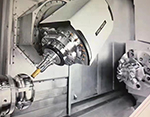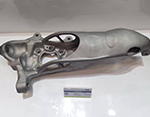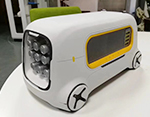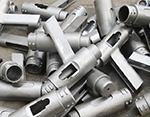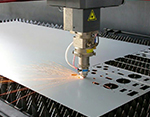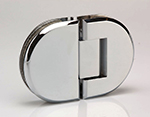-
Service
+
- CNC Precision Machining Service +
- Multi-Axis Simultaneous Machining Service +
- CNC Turning Service +
- Metal 3D Printing Service +
- Rapid Prototyping Service +
- Die Casting Service +
- Sheet Metal Fabrication Service +
-
Finish Serivces
+
- Polishing
- Grinding
- Brushed Finish
- Sand blasting
- Painting
- Powder Painting
- Anodizing
- Hard anodizing Service
- Passivation
- Zinc Plating
- Nickel Plating
- Chrome Plating
- Blackening
- Black Zinc Plating
- Teflon Coating
- Titanium Coating
- DLC Coating
- Laser Marking
- Silk Screen Printing
- Transfer Printing
- Micro Arc Oxidation
- Industries +
- About Us +
- Resource +
- Contact Us
- Quote

-
Service
-
>
-
>
-
>
-
>
-
>
-
>
-
>
-
>
-
- Industries
- About Us
- Resource
- Contact Us
Why is CNC Machining of Magnesium Gaining Popularity in Prototyping?
Magnesium and its alloys are more and more widely used in aerospace, defense industry, automobile industry and other fields with their superior properties.Today we will explore the advantages and applications of magnesium in CNC machining.The density of magnesium alloy is 1.8g/cm3, which is the lightest metal. Products made of magnesium have both: light weight, high strength, high stiffness, good heat dissipation, ability to withstand impact loads greater than aluminum alloys, good corrosion resistance to organic and alkaline substances properties.
What is the CNC machining?
CNC is the abbreviationof Computer numerical control. CNC machining usually refers to a series of precision machining process controlled by a computer numerical control system.The control system is capable of logically processing programs with control codes or other symbolic instructions specified. It is decoded by the computer so that the lathe performs the prescribed movements and cuts the raw material with the tool to obtain the target part. CNC Machining is used on many common metals such as aluminum, brass, mild and stainless steels, magnesium and titanium.
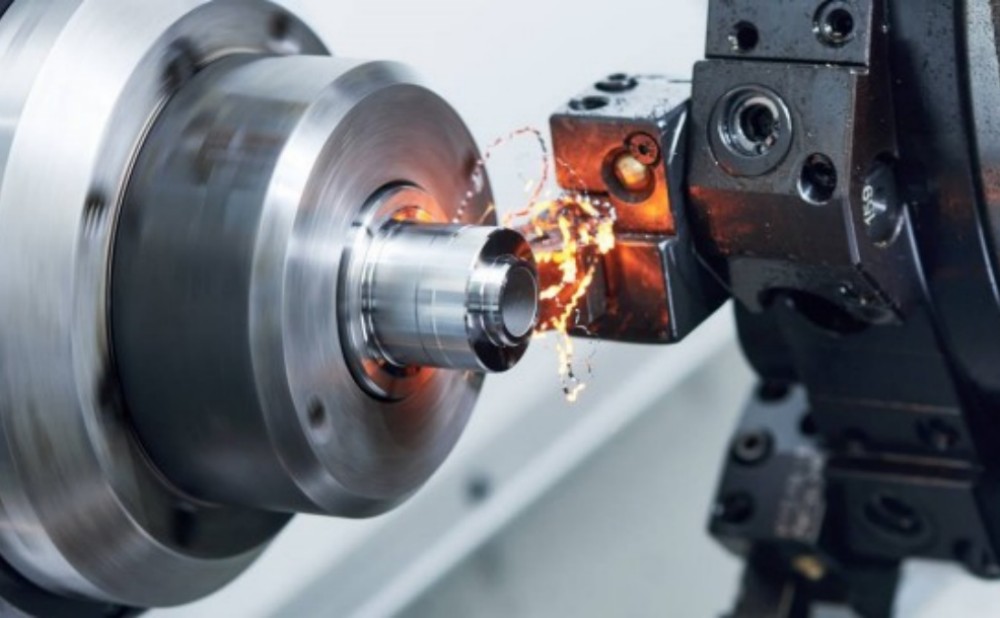
CNC Machining
Why use magnesium for CNC machining?
Magnesium and its alloys are an increasingly popular material in the engineering field. Magnesium is the third most commonly used structural metal after iron and aluminum. The proportion of magnesium is about 2/3 of that of aluminum and 1/4 of that of iron. The density of magnesium alloy is 1.8g/cm3, which is the lightest metal. Products made of magnesium have both: light weight, high strength, high stiffness, good heat dissipation, ability to withstand impact loads greater than aluminum alloys, good corrosion resistance to organic and alkaline substances properties. And magnesium has a low cutting resistance, which means it requires less power (about 55% of the power needed to cut aluminum) and will produce less tool wear. A very good surface finish can be produced with magnesium and this finish is not affected by the cutting speed.
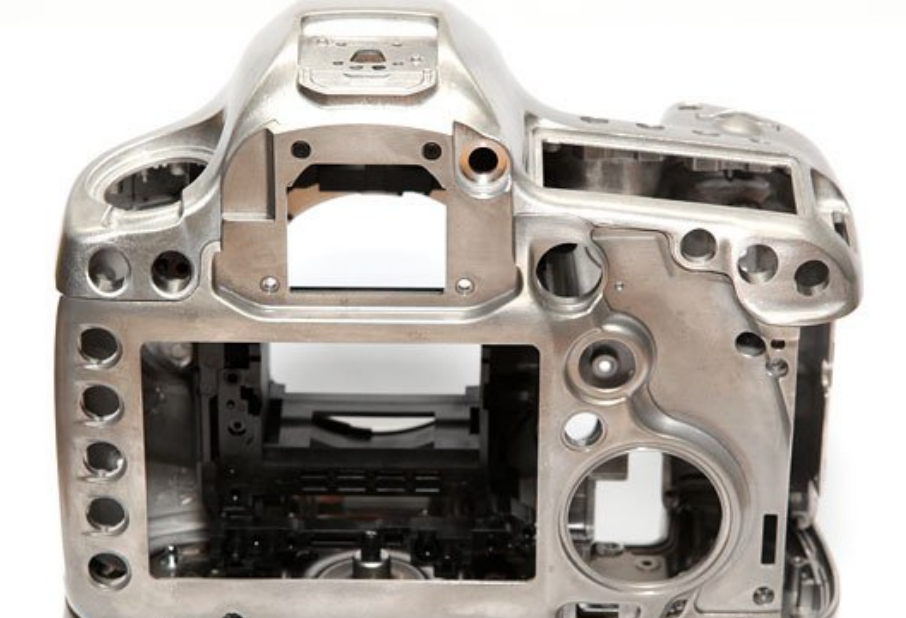
Magnesium Machining
What's the advantages of using magnesium for CNC machining?
1. Magnesium has low density and light weight, but it has high strength and good stiffness.
2. Magnesium alloy has good molding properties, low melting point, low kinetic viscosity, and good fluidity and ductility in the molten or semi-molten state.
3. Magnesium alloy has excellent environmental performance and high recovery rate. Magnesium alloy die casting has short processing process, low energy consumption, high quality, and can be recycled almost 100%, which can effectively save resources and do not pollute the environment.
4. Magnesium alloy has low heat capacity, fast solidification speed and good die casting performance. Due to the low heat capacity of magnesium alloys, the production efficiency is 40% to 50% higher than that of the same aluminum alloy castings, and the castings are more stable in size, higher in precision, and better in surface finish.
5. Magnesium alloys have good vibration damping properties. Automobile wheels and engine parts made of magnesium alloys can not only greatly reduce weight, but also significantly reduce noise, thereby reducing noise pollution to the environment.
The application of magnesium and its alloy parts in CNC machining
As a strong and lightweight material, magnesium alloy has a wide range of applications. Mainly used in aerospace field, defense industry, automobile industry, medical field, etc.
Application in aerospace field
The characteristics of magnesium alloys can meet the requirements of lightweight materials for noise absorption, shock absorption and radiation protection in high-tech fields such as aerospace, which can greatly improve the aerodynamic performance of the aircraft and significantly reduce the structural weight.
They are suitable for the manufacture of aircraft hubs, engine gearboxes, oil pumps and components such as tubes, rockers, flaps, doors and rudders, as well as some components on satellites such as instrument bays, tail compartments and engine mounts.
Application in defense industry
Due to the impact resistance of magnesium and magnesium alloys, if magnesium alloys with comparable corrosion resistance to aluminum alloys can be developed, they will have broad application prospects in various military fields such as weapons. Such as magnesium powder for flares, high specific strength magnesium alloy carrier materials for armor-piercing bullets, and tactical aviation missile compartments, aileron skins, wall panels and radars that can be made of deformed magnesium alloys, magnesium alloy well-shaped beams used on satellites, Parts such as camera mounts and housings.
Application in automobile industry
The application of magnesium alloys in the automotive field can be divided into two categories.
(1)Shell class. Such as clutch housing, valve cover, instrument panel, gearbox body, crankcase, engine front cover, cylinder head, air conditioner housing, etc.
(2) stents. Such as steering wheel, steering bracket, brake bracket, seat frame, mirror bracket, distribution bracket and so on.
According to the relevant research, the reduction in vehicle self-respect, fuel and emissions will be reduced accordingly, each reduction of 10%, so reducing the impact of car weight on the environment and energy is very large, the lightweight car becomes an inevitable trend.
COOPERATION PROCESS
>> Operation Process
1. Contact us with the drawings of your products.
Files formats are accepted when clients send us drawing.
3D: Pro/E, UG
2D: Auto CAD
Accepted file format: .igs, .prt, .stp, .x_t, .dxf, .dwg, .pdf, .jpg, .tif, .bmp, .doc, .xls.
2. Receive our offer. We will send you the quotation sheet as soon as possible.
3. Place the orders.
4. Make payments.
5. Engineers write programs for products.
6. Production.
Machining types: CNC milling, CNC turning, grinding, stamping, bending, welding, die casting, drilling, tapping and injection molding.
CNC machining range:
* Aluminum: 6061, 6063, 6061-T6, 7075, 5052, 2017, 6083.
* Steel: Q215,Q235,10# 15#, 45#, S136, SKD11,718H.
* Copper / brass / bronze.
* Titanium / TC4.
* Plastic: Delrin (POM), Teflon, Nylon, PA, PC, PMMA, Ultem (PEI), PTFE.
* Stainless steel: 303, 304, 316, 430, 420.
Surface treatment: laser engraving LOGO, Anodizing, Sandblasting, Plating chrome, Plating nickel, RoHS zin, Assembly, Welding, Heat treating, and so on.
7. QC checks the quality of machinery machining parts.
8. Packing.
9. Delivery.
>> Equipment
CNC milling machines, CNC turning machines
>> Tolerance
Tolerance for the precision machined aluminum parts: ±0.01mm.
>> Our characteristics
1. Our service is from the provision of technical advice, our engineers will take into account all your requirements to choose the best materials and production processes;
2. We have ample material suppliers to meet the supply of bulk or proofing materials;
3. Our engineers will choose the right tool according to the different nature of the material processing;
4. For easy deformation of the material (nylon, copper, etc.) will have a special process processing;
5. Strict quality management, to ensure the provision of high-quality products
For more information and consultation, contact us here!
E-mail: Erin@kesugroup.com

